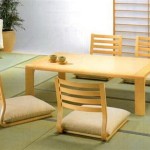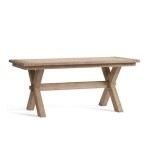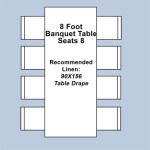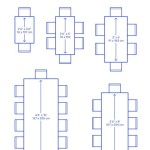What Kind of Vegetables Can You Grow In Containers?
Container gardening offers a versatile and accessible method for individuals to cultivate fresh vegetables, irrespective of the size of their outdoor space. This approach proves particularly beneficial for those residing in apartments, with limited yards, or with challenging soil conditions. The selection of vegetables suitable for container cultivation is extensive, providing opportunities to enjoy a diverse range of homegrown produce. Successful container vegetable gardening hinges on choosing appropriate varieties, providing optimal growing conditions, and implementing proper care practices.
The advantages of container gardening extend beyond spatial efficiency. Containers afford gardeners the ability to control soil composition, ensuring optimal drainage and nutrient availability. Mobile containers offer the flexibility to relocate plants to maximize sunlight exposure or shelter them from inclement weather. Furthermore, container gardening minimizes weed proliferation and reduces the susceptibility to soilborne diseases, common challenges in traditional in-ground gardens. Proper planning and execution are crucial for maximizing yields and enjoying a bountiful harvest.
Choosing the Right Vegetables for Container Gardening
Selecting appropriate vegetable varieties is paramount for successful container gardening. Certain vegetables thrive in the confined spaces of containers, while others demand more room for root development or sprawling growth habits. Smaller, bush-type varieties generally perform better in containers compared to their larger, vining counterparts. The following are considerations when choosing vegetables for container cultivation:
Compact Size: Opt for vegetables that naturally exhibit a compact growth habit. Bush beans, dwarf tomatoes, and miniature peppers are excellent examples of varieties bred explicitly for container gardens. These varieties require less space and are more manageable within the confines of a pot. Conversely, sprawling plants like watermelons or pumpkins are typically unsuitable for container cultivation unless provided with exceptionally large containers and robust support structures.
Root Depth: Consider the root depth of the vegetables you wish to grow. Root vegetables, such as carrots and radishes, require containers deep enough to accommodate their root development. Shallow-rooted vegetables, such as lettuce and spinach, can thrive in shallower containers. Ensuring adequate depth is crucial for proper root development and overall plant health. Insufficient depth can lead to stunted growth and reduced yields.
Sunlight Requirements: Most vegetables require at least six to eight hours of direct sunlight daily to thrive. Therefore, select vegetables that align with the amount of sunlight available in your growing area. Leafy greens like lettuce and spinach can tolerate partial shade, whereas fruiting vegetables like tomatoes, peppers, and eggplants necessitate ample sunlight for optimal fruit production. Assessing sunlight availability is a critical step in planning a container garden.
Specific Variety Considerations: Numerous vegetable varieties have been specifically bred for container gardening. These varieties often feature compact growth habits, disease resistance, and early maturity. Some examples include 'Patio' tomatoes, 'Spacemaster' cucumbers, and 'Little Finger' carrots. Researching and selecting these specialized varieties can significantly increase the likelihood of success in a container garden.
Companion Planting: Employing companion planting principles can enhance the productivity of container gardens. Companion plants can attract pollinators, deter pests, and improve nutrient uptake. For example, planting basil alongside tomatoes can improve tomato flavor and deter pests. Marigolds can repel nematodes, while nasturtiums can attract aphids away from other vegetables. Careful consideration of companion plants can contribute to a healthier and more productive container garden.
Essential Considerations for Container Gardening Success
Beyond selecting suitable vegetables, several essential factors contribute to the success of container gardening. These include choosing appropriate containers, providing optimal soil conditions, and implementing proper watering and fertilization practices:
Container Selection: Selecting the appropriate container is a critical step. The size of the container should correspond to the size of the mature plant's root system. As a general guideline, larger plants necessitate larger containers. Drainage is also essential; ensure containers have drainage holes to prevent waterlogging, which can lead to root rot. Material is another consideration. Terracotta pots retain moisture less than plastic pots, which may be preferable in humid climates. Dark-colored containers can absorb more heat, potentially overheating the soil in hot climates. The container must be durable enough to withstand the stresses of weather and handling.
Soil Composition: Use a well-draining potting mix specifically formulated for containers. Garden soil is generally too heavy and compacts easily, impeding drainage and root development. A good potting mix should be lightweight, retain moisture, and provide adequate aeration. It typically contains a blend of peat moss, vermiculite, and perlite. Adding compost to the potting mix can enhance nutrient content and improve water retention. Regularly replenishing the soil with compost or adding slow-release fertilizer is beneficial for maintaining soil fertility.
Watering Practices: Consistent and adequate watering is vital for container vegetable gardening. Containers tend to dry out more quickly than in-ground gardens, particularly during hot weather. Check the soil moisture regularly, and water when the top inch or two of soil feels dry to the touch. Avoid overwatering, which can lead to root rot. Water deeply, ensuring the entire root ball is moistened. Consider using a soaker hose or drip irrigation system to provide consistent and efficient watering. Monitor plants for signs of wilting or leaf discoloration, which can indicate underwatering or overwatering.
Fertilization: Container plants rely on the gardener for nutrient supply. Regular fertilization is essential for supporting healthy growth and abundant yields. Use a balanced, water-soluble fertilizer formulated for vegetables. Follow the instructions on the fertilizer label carefully, as over-fertilization can damage plants. Alternatively, use a slow-release fertilizer incorporated into the potting mix at planting time. Supplement with liquid fertilizer throughout the growing season to provide additional nutrients. Monitor plants for signs of nutrient deficiencies, such as yellowing leaves or stunted growth, and adjust fertilization accordingly.
Sunlight Exposure: As previously noted, sufficient sunlight is crucial for vegetable growth. Position containers in a location that receives at least six to eight hours of direct sunlight daily. If sunlight is limited, consider using supplemental lighting, such as grow lights. Rotate containers periodically to ensure even sunlight exposure on all sides of the plant. Monitor plants for signs of insufficient sunlight, such as leggy growth or pale leaves, and adjust their position accordingly.
Specific Vegetable Examples Suitable for Containers
Numerous vegetables are well-suited for container cultivation, each with its unique requirements and considerations. Here are some examples:
Tomatoes: Dwarf and bush varieties of tomatoes are ideal for containers. 'Patio' and 'Roma' tomatoes are popular choices. They require sturdy support, such as a stake or cage, to prevent sprawling and breakage. Ensure the container is large enough to accommodate the mature plant's size, typically at least 15 gallons. Regular watering and fertilization are critical for optimal fruit production.
Peppers: Bell peppers, chili peppers, and other pepper varieties thrive in containers. Select compact varieties for best results. Peppers require well-drained soil and warm temperatures. Provide support for taller varieties to prevent them from toppling over. Consistent watering and fertilization are essential for abundant pepper production.
Lettuce and Spinach: These leafy greens are shallow-rooted and easy to grow in containers. They tolerate partial shade, making them suitable for areas with limited sunlight. Sow seeds directly into the container and harvest the leaves as needed. Regular watering and fertilization will promote continuous growth.
Herbs: Many herbs, such as basil, mint, rosemary, and thyme, are well-suited for container gardening. They require well-drained soil and moderate sunlight. Herbs can be grown individually or in mixed containers. Regular pruning is essential for maintaining a compact shape and encouraging bushy growth.
Radishes: Radishes are fast-growing and easy to cultivate in containers. They require well-drained soil and plenty of sunlight. Sow seeds directly into the container and harvest the radishes within a few weeks. Consistent watering is essential for plump, juicy radishes.
Bush Beans: Bush bean varieties are compact and productive in containers. They require well-drained soil and plenty of sunlight. Sow seeds directly into the container and harvest the beans when they are tender and young. Providing support for taller varieties can prevent them from sprawling. Consistent watering and fertilization are essential for abundant bean production.
Cucumbers: Select bush or compact cucumber varieties for container gardening. 'Spacemaster' is a popular choice. They require a trellis or support structure for the vines to climb. Ensure the container is large enough to accommodate the mature plant's size, typically at least 10 gallons. Regular watering and fertilization are crucial for optimal fruit production.
Eggplant: Dwarf eggplant varieties can be successfully grown in containers. They require well-drained soil, warm temperatures, and plenty of sunlight. Providing support for the plants is essential to prevent them from toppling over as the fruits develop. Regular watering and fertilization are crucial for optimal eggplant production.

17 Vegetables That You Can Grow In Pots And Containers Growing Container Gardening

The Best 11 Vegetables To Grow In Pots And Containers Gardener S Path

20 Best Vegetables For Container Gardening A Piece Of Rainbow

20 Best Vegetables For Container Gardening Growing In The Garden
Vegetables In Containers Rhs Gardening

How To Grow Organic Vegetables In Pots About The Garden

Vegetables You Can Grow In Small Pots Space Gardening

The Best 11 Vegetables To Grow In Pots And Containers Gardener S Path

Vegetable Gardening A Beginner S Guide Nc State Extension Publications

The Best 11 Vegetables To Grow In Pots And Containers Gardener S Path








